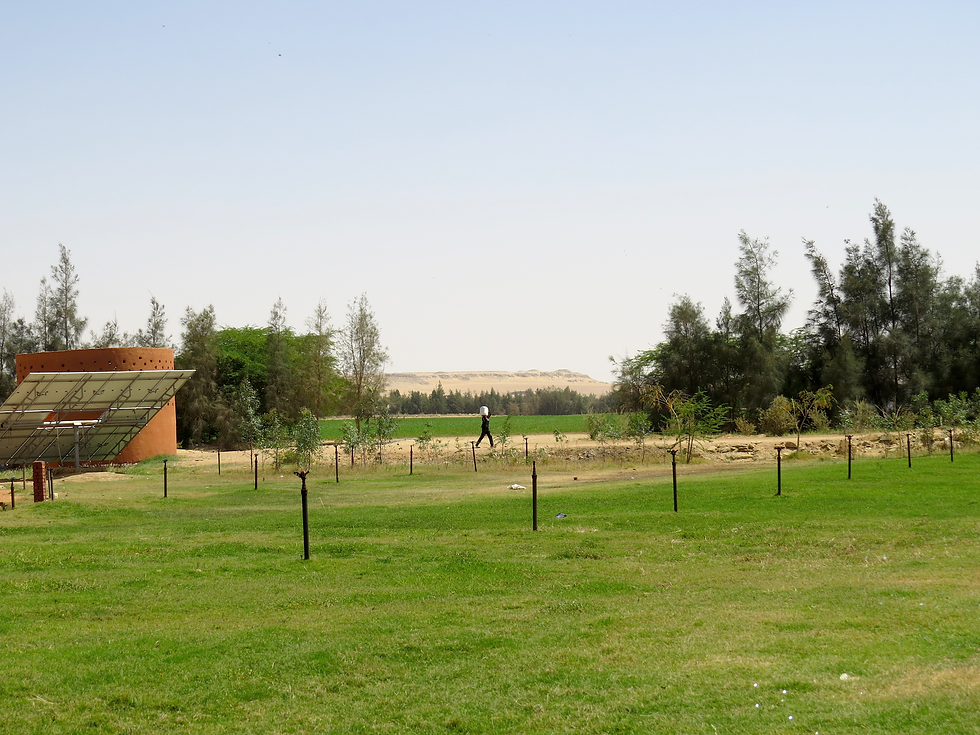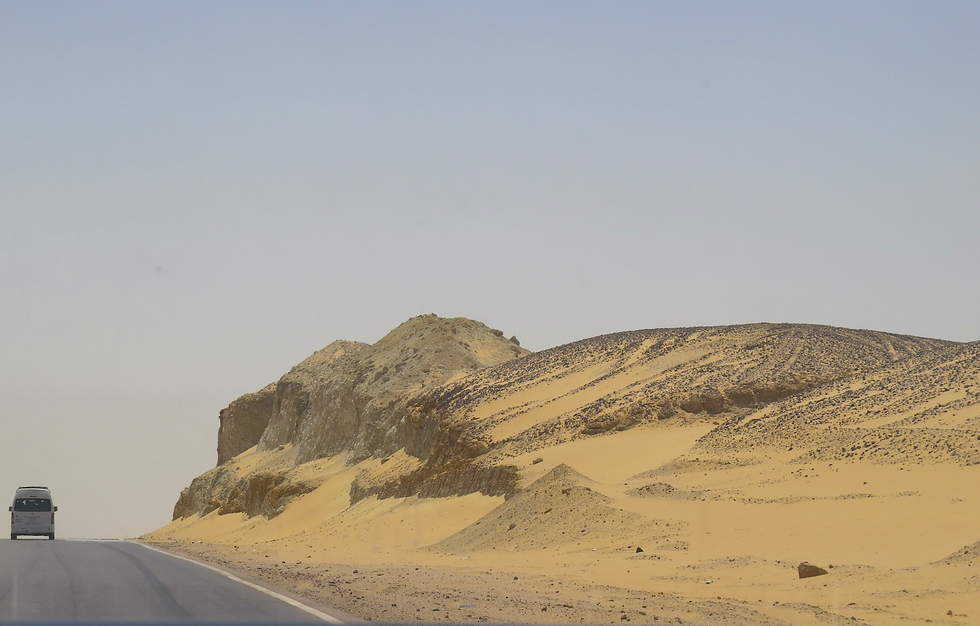Greening the Desert – Sekem´s Wahat Project
- BiO ReporterIn

- Aug 14
- 3 min read
The Egyptian Sekem initiative, founded in 1977 by Ibrahim Abouleish, has grown into a model for sustainable, climate-friendly solutions and a respectable organic business group. On several desert farms Sekem is demonstrating how biodynamic agriculture can bring desert soil back to life. I had the opportunity to visit the Wahat desert farm in the Western Sahara in April 2025 and was fascinated by the emerging community with its diversity of ecological, agricultural, social and cultural aspects. Watch the short video and read the article.
My short video gives an impression of Sekem´s desert farm Wahat.
The miracle of greening the desert is happening in the Western Sahara, almost 600 km away from Cairo and the Sekem mother farm. In the former Wahat El Bahareya oasis with its large underground freshwater reserves, Sekem is scaling up the experience gained from almost 50 years of work on the main farm to around 1,000 hectares of desert sand.
Sekem´s best practice in greening the desert
Wahat is one of three desert farms with a total of over 2,500 hectares of land. Here, one can imagine the immense progress Sekem has already made in recent decades with its vision of bringing ecology, social issues, culture and economics into sustainable harmony. The future model called Economy of Love is being lived by the Sekem community. In Wahat, the future model is taking shape as well in the form of a vibrant community and a well functioning organic farm.

A guided tour of the remarkable places and details that make biodynamic work possible in Wahat left us in amazement. Examples are: the solar panels which their help water from deep in the ground is pumped up into an artificial lake to do the irrigation during the cool desert nights. The composting area, where cow dung plays a vital role for the organic agriculture also in the desert. But certainly water is the most precious resource. The new constructed clay buildings, the almost 600,000 trees that are already planted.

There´s 100% sunshine around the year, so solar panels produce a lot of power for all needs of the community. (Photo: Karin)
And there so many more details like the small botanical garden where the research for the best plants and herbs for the desert climate is done. Chamomile is grown with biodynamic methods in large scale for tea and natural medicine. Besides that main cash crops on the Wahat farm are hibiscus, peppermint, basil and other herbs aswell as dates, jojoba, prickle pears. Wheat and other cereals are grown for the own bakery in Wahat, a cow herd gives milk and meat.
Young well educated experts help develpping Wahat
Mustafa who studied agriculture in Cairo guided the group and explained that for every crop there is already a contract with a customer. If the client requests a special manufacturing Sekem can offer different varieties like drying, cutting, making juice or tea bags.
Mustafa also explained that they train and coach local farmers and the community not only in organic farming but also in awareness for the environment. Plastic bottles are a recycling material, to be collected. It brings even money to finance the transformation, buy new trees, construct new buildings. A very new initiative is the manufacturing of palm wood into pots, the waste is used for composting.

Children and cows in the desert
More and more families from the neighborhood villages send their children to the Wahat kindergarden and school which are organized like Steiner´s Waldorf schools.
It was a special experience to stand in the morning circle first with the Wahat community and farm workers and later with the desert kids before they began their day in the kindergarden and the school. Not less amazing was the visit of the nice cow herd which seemed to feel very comfortable under the hot sun and enjoyed their grass feeding.

Back to the old oasis buildings, the new clay sustainable community buildings we saw the bakery and visited the analysis lab. We are amazed about the modern equipment and the expertise of the female leader there, who explained the different specification of their work. It is really impressive what happens in Wahat.
Our little gift to the Wahat project was the planting of trees to increase the impact for the climate, and help greening the desert. We hope they grow well.
Author: Karin Heinze, BiO Reporter International










Comments